
The SEQUOIA study's 5-year follow-up confirms zanubrutinib's safety profile and low cardiovascular events in treatment-naive chronic lymphocytic leukemia, according to Mazyar Shadman, MD, MPH, of Fred Hutchinson Cancer Center.

The SEQUOIA study's 5-year follow-up confirms zanubrutinib's safety profile and low cardiovascular events in treatment-naive chronic lymphocytic leukemia, according to Mazyar Shadman, MD, MPH, of Fred Hutchinson Cancer Center.

Abstracts presented Saturday at the American Society of Hematology in San Diego, California, included studies on access to care and an analysis of young physicians' relocation patterns as they transition to fellowship and attending positions.

One of the study’s bright spots is that Hispanic children, who have higher rates of B-cell acute lymphoblastic leukemia and worse outcomes, had proportionally greater benefit from blinatumomab.

Meghan Gutierrez, CEO of the Lymphoma Research Foundation, highlights key topics and takeaways that attendees can expect from this year's meeting.
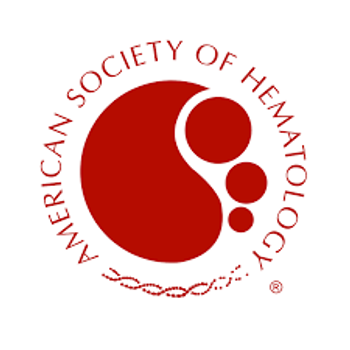
The 66th American Society of Hematology (ASH) Annual Meeting & Exposition will take place December 7-10, 2024, in San Diego, California.

The findings suggest patient-reported outcomes—namely fatigue—may be helpful in identifying patients at a higher risk of death and other adverse outcomes but warrant further research.
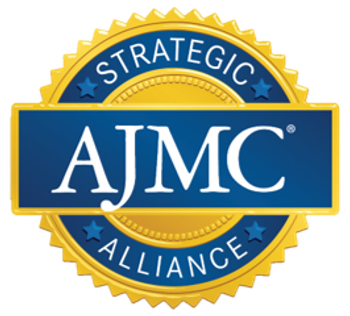
Abstracts from the 65th American Society of Hematology (ASH) Annual Meeting and Exposition provided new insight into multiple treatments for patients with multiple myeloma (MM), chronic lymphocytic leukemia (CLL), and follicular lymphoma (FL).
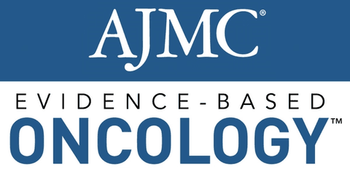
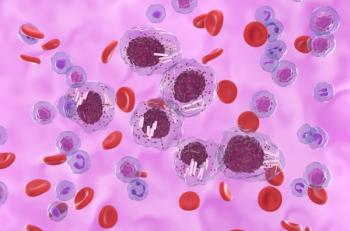
A real-world study found that patients treated with Bruton tyrosine kinase inhibitors had lower rates of treatment discontinuation and health care resource utilization compared with other first- and second-line treatment regimens.
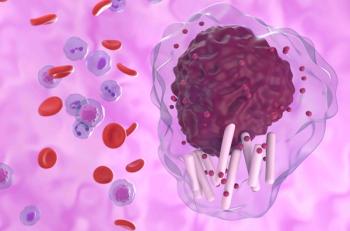
Findings from the phase 3 SEQUOIA trial favored zanubrutinib over bendamustine plus rituximab in most biomarker-based subgroups of patients with chronic lymphocytic leukemia (CLL) or small lymphocytic lymphoma (SLL) without deletion of the 17p chromosome.
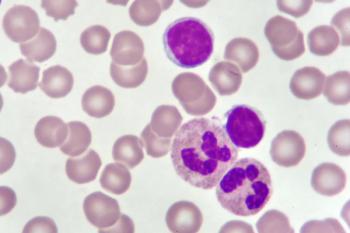
An abstract presented at the 2023 American Society of Hematology Annual Meeting and Exposition suggests that patients with chronic lymphocytic leukemia (CLL) treated in the era of novel agents might be less likely to experience Richter transformation compared with those treated prior to this era.
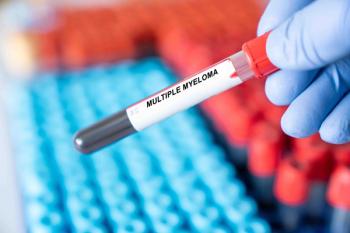
Data presented at the 2023 American Society of Hematology (ASH) Annual Meeting and Exposition highlighted improvements in patient-reported outcomes (PROs) with ciltacabtagene autoleucel (cilta-cel) in multiple myeloma (MM).

“Unfortunately, limited access to these therapies worldwide appears to be a major challenge,” the researchers wrote.
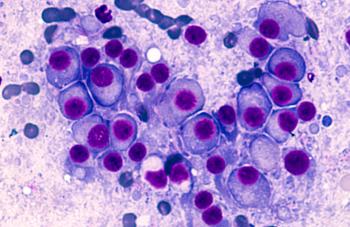
Real-world data presented at the 2023 American Society of Hematology Annual Meeting and Exposition showed similar toxicity profiles and outcomes among older and younger patients with multiple myeloma (MM) treated with teclistamab.
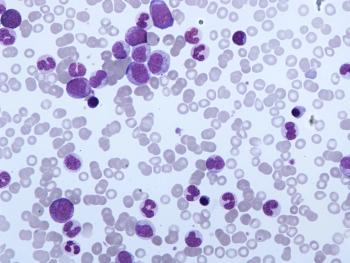
The authors concluded that the data support consideration of the oral regimen of decitabine and cedazuridine to reduce the treatment burden associated with intraveous or subcutaneous hypomethylating agents in patients with myelodysplastic syndromes (MDS).
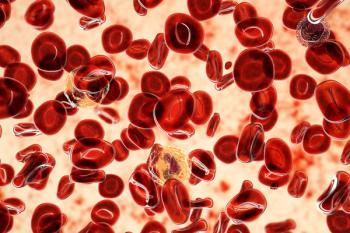
Posters presented at the American Society of Hematology Annual Meeting and Exposition identified factors associated with reducing risk and improving survival in patients with polycythemia vera (PV).

Dose modifications of talquetamab improved on-target adverse effects while maintaining responses for patients with relapsed/refractory multiple myeloma.

The results indicated that a substantial proportion of patients, particularly in rural, less educated, and elderly demographics, are insufficiently informed about novel MM treatments, including chimeric antigen receptor (CAR) T-cell therapies and bispecific antibody alternatives.

Robert Rifkin, MD, medical oncologist and hematologist at Rocky Mountain Cancer Centers, shares insight into how the phase 2 Optec study of teclistamab administration in the outpatient setting could help achieve important health equity and quality goals.
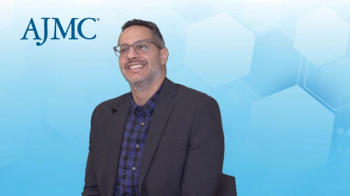
Ibrahim T. Aldoss, MD, of City of Hope Comprehensive Cancer Center, discusses the potential of revumenib in KMT2A-rearranged (KMT2Ar) acute leukemias, with pivotal results presented at the 65th Annual American Society of Hematology Annual Meeting and Exposition this week.
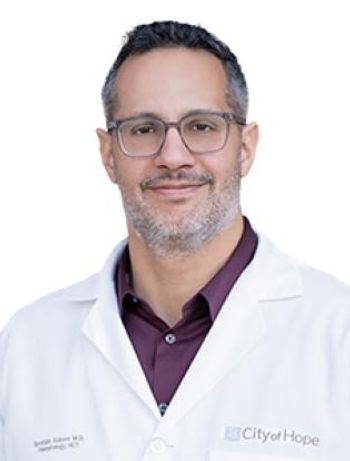
In AUGMENT-101, patients with R/R KMT2Ar acute leukemia had high overall response rates; despite being heavily pretreated, 40% were able to proceed to transplant and the KMT2Ar cohort was stopped early.

A late-breaking abstract presented at the American Society of Hematology Annual Meeting and Exposition supports the addition of subcutaneous daratumumab to standard-of-care bortezomib, lenalidomide, and dexamethasone (VRd) in patients with newly diagnosed multiple myeloma who are eligible for autologous stem cell transplantation.

In a packed session Monday at the 65th American Society of Hematology Annual Meeting and Exposition in San Diego, California, Anita Kumar, MD, of Memorial Sloan Kettering Cancer Center, presented phase 2 results for 25 patients with TP53 mutations.
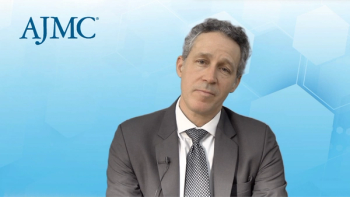
David J. Andorsky, MD, board-certified medical oncologist and hematologist at Rocky Mountain Cancer Centers, discussed findings from a study on patterns of Bruton tyrosine kinase (BTK) inhibitor care use and social determinants of health (SDOH) among patients with chronic lymphocytic leukemia (CLL) or small lymphocytic lymphoma (SLL).
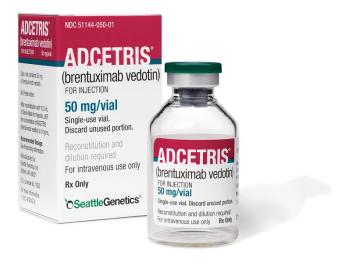
Use of an antibody drug conjugate and a PD-1 inhibitor brings complementary mechanisms together while eliminating the most toxic agent that has been used in combinations to treat classic Hodgkin lymphoma (cHL).

Presenters at the American Society of Hematology Annual Meeting and Exposition agreed that novel strategies, such as CRISPR and base editing, have potential to fine-tune the latest immunotherapy advancements to increase the efficacy and durability of a range of treatments.
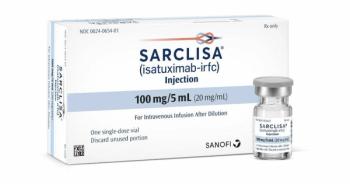
Minimal residual disease (MRD) is not accepted by regulators as a surrogate end point, but a commenter at the American Society of Hematology plenary session said one is needed.
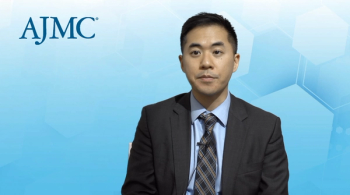
Andrew Srisuwananukorn, MD, of the Ohio State University Comprehensive Cancer Center, explained the potential of artificial intelligence (AI)-based support tools for differentiating primary myelofibrosis (prePMF) and essential thrombocythemia (ET) in the community setting.

Recent decades have seen marked improvements in hematological cancer outcomes and an expanded armamentarium of therapies, but novel treatments require updated strategies that are not always easy to fine-tune, according to presenters at the 2023 American Society of Hematology Annual Meeting and Exposition.

Preliminary results showed a small group of patients with CLL had 100% progression-free survival at 9.7 months when taking an investigational BCL2 inhibitor, sonrotoclax, with zanubrutinib.

259 Prospect Plains Rd, Bldg H
Cranbury, NJ 08512
© 2025 MJH Life Sciences®
All rights reserved.
